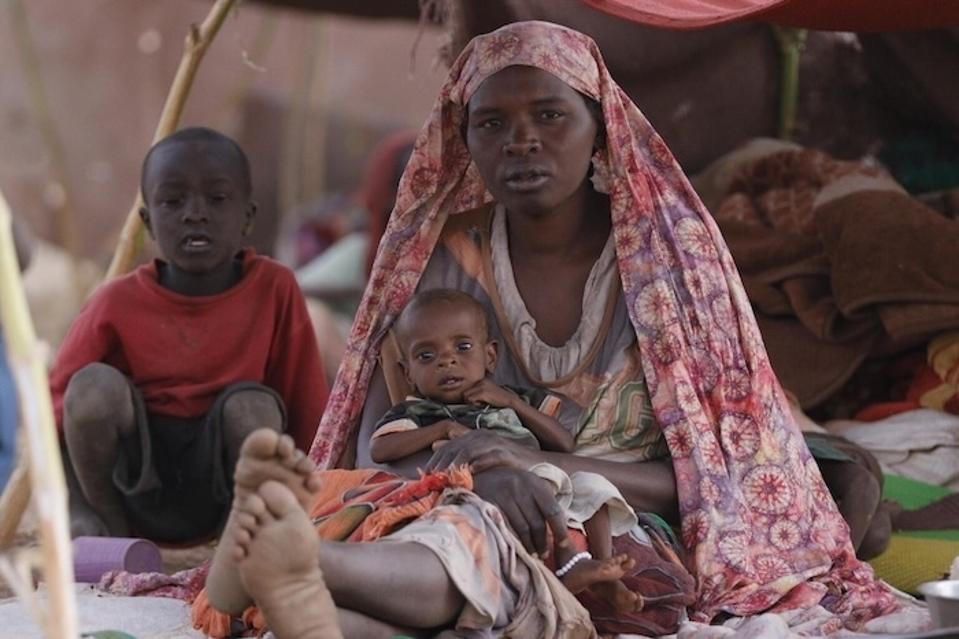Protecting children from illness and hunger builds the foundation for resilient, thriving and peaceful communities. Every dollar invested in humanitarian aid and development creates long-term benefits and a more secure and stable world.
A global child emergency
International aid funding cuts are creating a global child emergency. The unprecedented scale and speed of change is disrupting critical services and putting the lives and well-being of millions of children at risk.
These unprecedented cuts are having an immediate and severe threat to children’s survival, protection and education. UNICEF projects at least a 20 percent reduction in all sources of income from 2024 levels for UNICEF’s humanitarian, development and child rights programs in 2026.
To put this in human terms, on nutrition alone, UNICEF estimates nearly 15 million children and mothers could have their access to nutrition support disrupted, leaving them vulnerable to becoming severely malnourished.
Aid cuts mean children will die from entirely preventable causes
In particular, UNICEF’s funding for humanitarian response is at risk. Without new funding, anticipated cuts could mean a shortfall of more than 40 percent of dedicated emergency funding in East and Southern Africa, 35 percent in the Middle East and North Africa, 30 percent in West and Central Africa, and close to 50 percent in Latin America and the Caribbean.
Because of these cuts, children will die from entirely preventable causes — not only malnutrition, but also lack of clean water, safe sanitation and essential health services. Countless more will miss out on education and programs that protect them from harm and abuse.
More than 213 million children in 146 countries and territories will require humanitarian assistance in 2025
Children’s lives are at stake, precisely when they need our support the most. Throughout its history, UNICEF has worked with our partners to uphold children’s rights, provide lifesaving humanitarian aid and advance children’s development and well-being.
Today, needs are greater than ever: a historic high number of children (nearly one in five) are living in conflict zones; another historic high number of children (nearly 50 million) are displaced; and nearly half the world’s children live in countries that are at extremely high risk of the impacts of climate change. UNICEF estimates that more than 213 million children in 146 counties and territories will require humanitarian assistance in 2025.
Immunization saves children’s lives and prevents global disease outbreaks
In an interconnected world, aid cuts anywhere threaten security and economic prosperity everywhere. Protecting children from deadly but preventable diseases is one of the most profound things we can do as a global community — and it’s one of the smartest.
Over the past 50 years, immunization has saved the lives of 146 million children, accounting for 40 percent of the drop in infant mortality in that period. But vaccinating a child doesn’t just save them from deadly childhood diseases — it protects all of us by preventing outbreaks that can easily cross borders and become global health threats.
In just 25 years, the number of children dying before their fifth birthday has been cut in half
By expanding access to clean water, safe sanitation and nutrition, we protect children from illness and hunger — and build the foundation for resilient, thriving and peaceful communities. In just 25 years, global action has halved the number of children dying before their fifth birthday and reduced childhood stunting by a third.
Humanitarian response and investing in keeping children safe helps prevent displacement across borders. Political instability degrades social systems and breeds extremism.
Without quality education, children will face barriers to employment and are more likely to struggle with health challenges, impeding their ability to contribute to their societies.
UNICEF is determined to stay and deliver for the world’s children
Saving and protecting millions of children’s lives is a collective endeavor. This hard-won progress has been possible because of the generosity of donors and governments and the tireless work of thousands of aid workers worldwide.
UNICEF is determined to stay and deliver for the world’s children — especially given this time of unprecedented need. Every dollar invested in humanitarian aid and development creates long-term benefits and a more stable and secure world.
Right now, the lives of the most vulnerable children hang in the balance as conflicts and crises jeopardize the care and protection that they deserve. Dependable, uninterrupted and effective foreign aid is critical to the well-being of millions of children. Please contact your members of Congress and urge them to support ongoing U.S. investments in foreign assistance.

